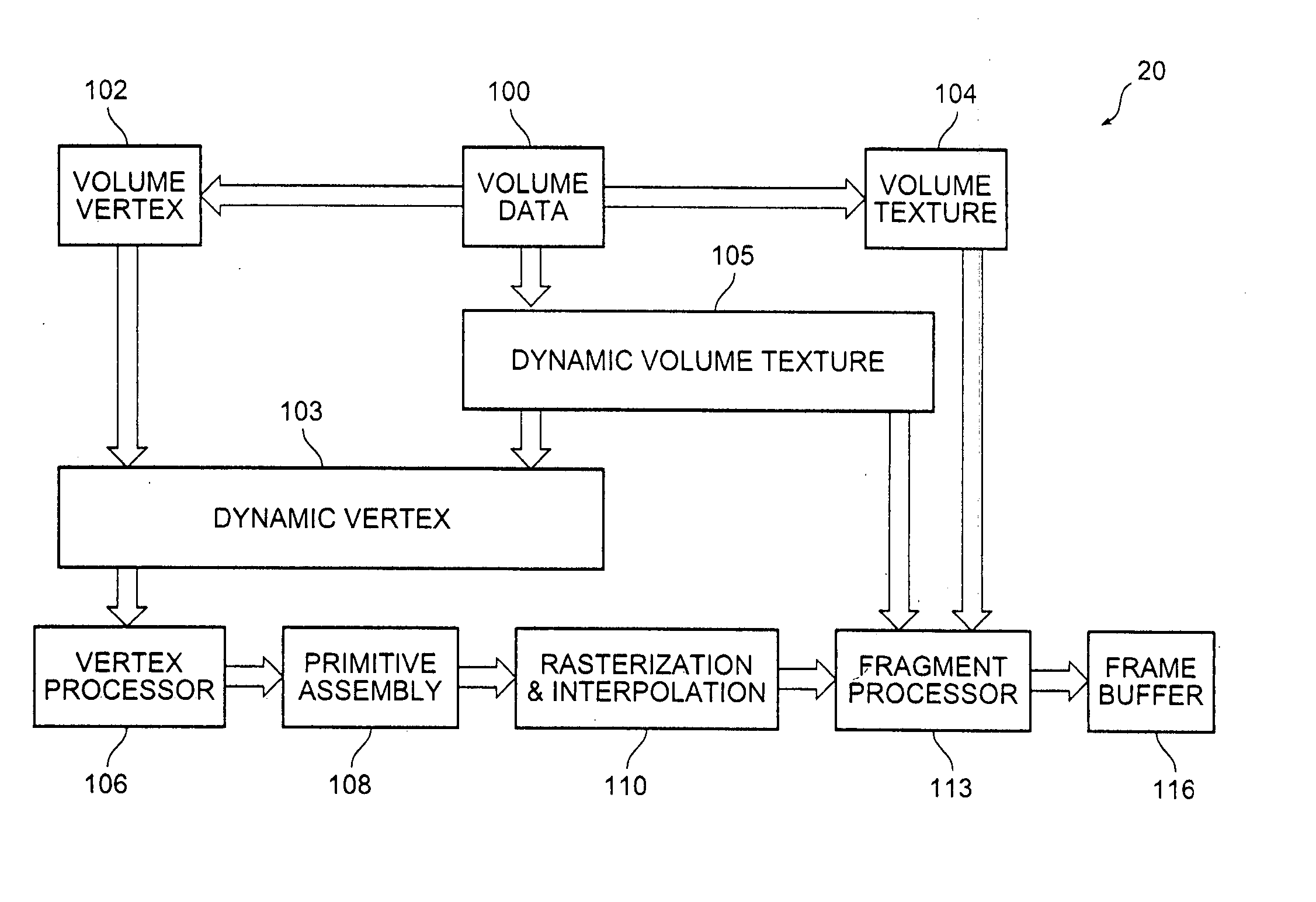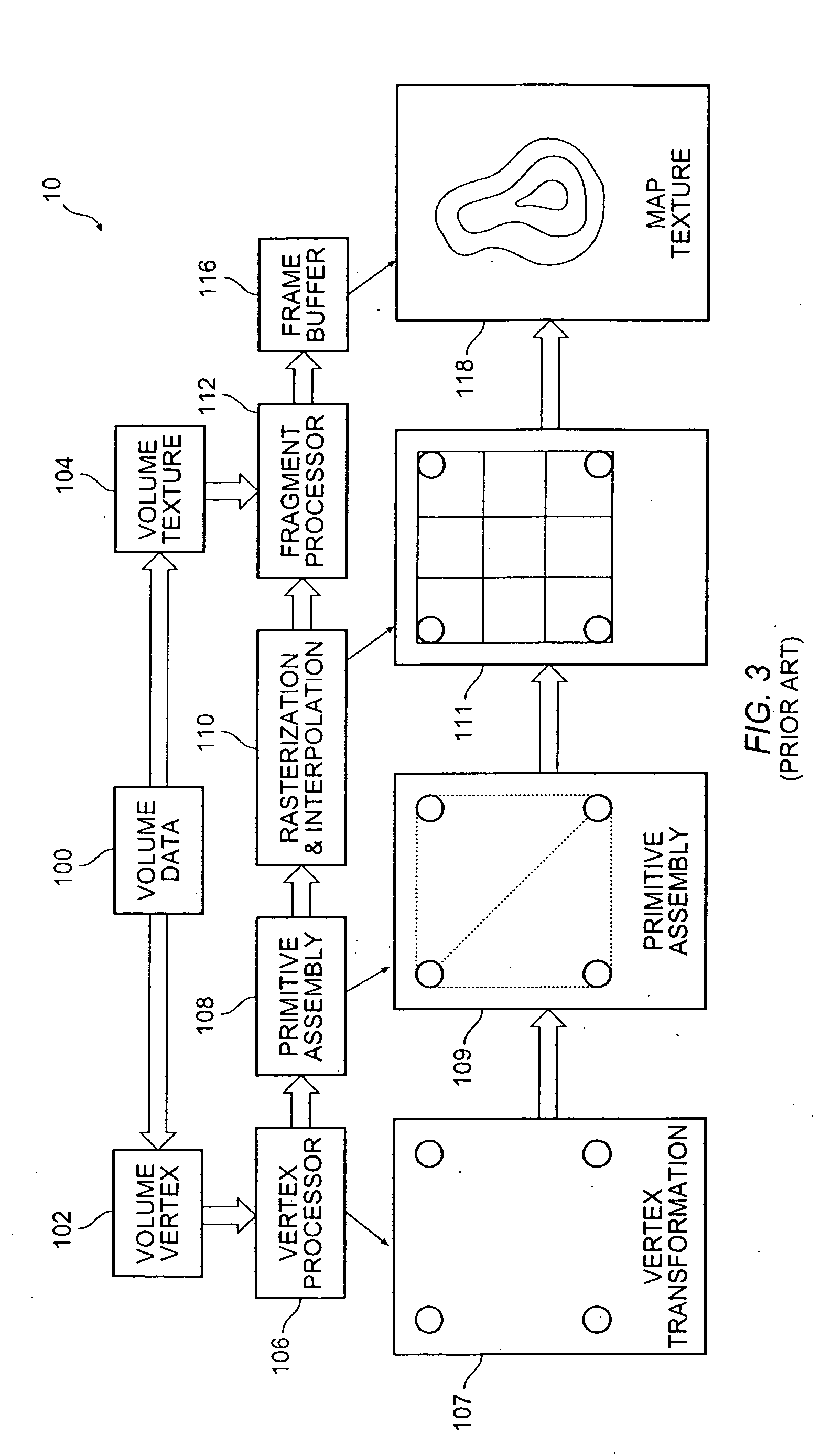Block-based fragment filtration with feasible multi-GPU acceleration for real-time volume rendering on conventional personal computer
a block-based fragment and multi-gpu technology, applied in the field of visual image manipulation, can solve the problems of degrading rendering performance, inefficient use of hardware resources, and high computational intensity of texture mapping, and achieve the effect of lessening the burden of fragment processing in the rendering pipelin
- Summary
- Abstract
- Description
- Claims
- Application Information
AI Technical Summary
Benefits of technology
Problems solved by technology
Method used
Image
Examples
Embodiment Construction
[0042] According to the invention, the burden of fragment processing in the rendering pipeline is lessened by selectively passing the fragments to various processors for specialized processing. Instead of a batch processing of separate voxels / fragments, blocks of fragments are processed. This selective fragment processing is herein called Block-based Fragment Filtration.
[0043]FIG. 4A shows a volume rendering pipeline 20 according to the invention. Its differences compared to the prior art processor 10 (FIG. 3) will be apparent. The aim is to reduce the number of fragments being passed to a vertex processor 106 and to an augmented fragment processor 113, which differs some from that of the prior art to conform with the present invention. The volume data is separated into a volume vertex element 102 and a volume texture element 104, as well as a dynamic volume texture element 105. The volume vertex element 102 is converted to a dynamic vertex element 103, the output of which is suppl...
PUM
 Login to View More
Login to View More Abstract
Description
Claims
Application Information
 Login to View More
Login to View More - R&D
- Intellectual Property
- Life Sciences
- Materials
- Tech Scout
- Unparalleled Data Quality
- Higher Quality Content
- 60% Fewer Hallucinations
Browse by: Latest US Patents, China's latest patents, Technical Efficacy Thesaurus, Application Domain, Technology Topic, Popular Technical Reports.
© 2025 PatSnap. All rights reserved.Legal|Privacy policy|Modern Slavery Act Transparency Statement|Sitemap|About US| Contact US: help@patsnap.com



